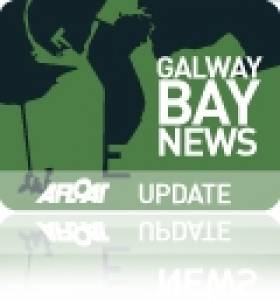Displaying items by tag: Sheridan
New Ocean Centre to Open in Galway
The centre will provide facilities for all the watersports organisations in the city and region and is located in the new Galway Harbour Enterprise Park adjacent to the new harbour slipway that was built specifically for the Volvo Ocean Race in 2009. The 25,000 sq ft premises is being provided by Cold Chon (Galway) Ltd for a nominal rent and the land is being provided free by Galway Harbour Company.
Some of the clubs that have already committed to this new facility include the Galway Sea Scouts, Galway Sea Sports Association, Galway Sub Aqua Club, Bádoiri an Cladaigh, OYTI, Galway Coastal Rowing, Kayak Mor and Galway Bay Sailing Club.
'The Harbour Company is pleased to assist in pulling together the various water sport bodies under one roof and in the heart of the harbour. The new facility and the recently constructed slipway will be the focal point for Galway's marine leisure, getting Galwegians afloat and established in the city, commented Harbour Master', Captain Brian Sheridan.
The Centre is also hosting Let's Do It Global which ran the very successful Green Dragon campaign and the Galway Volvo Ocean Race Festival. The team is now working towards hosting a spectacular finish to the Volvo Ocean Race 2011-12 in July 2012.
The centre will provide operational facilities such as offices, changing rooms and storage facilities. There will be no social amenities or bars at the centre however it is anticipated that the establishment of the centre will provide impetus for attracting further watersport events to Galway.
The launch will take place at The Galway Ocean Sports Centre, Galway Harbour Enterprise Park, Galway City.





























































